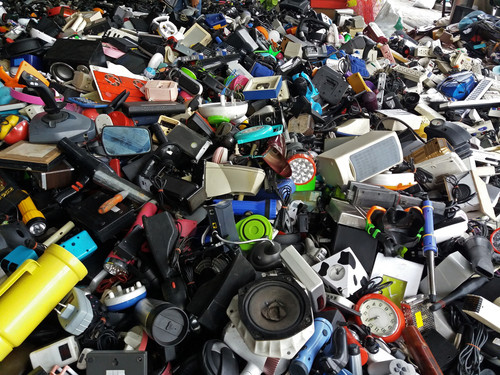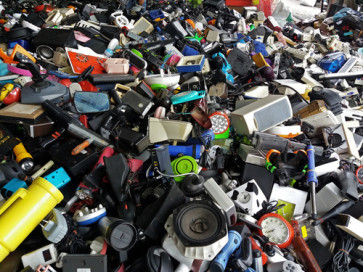Popular Reads
Top Results
Can't find what you're looking for?
View all search resultsPopular Reads
Top Results
Can't find what you're looking for?
View all search resultsCircular economy may add up to $45b to Indonesia’s GDP by 2030
A government report estimates that circular economy practices can help Indonesia cut waste output by between 18 and 52 percent by 2030 while generating 4.4 million new jobs.
Change text size
Gift Premium Articles
to Anyone
A
dopting a circular economy in Indonesia’s key sectors might add between Rp 593 trillion ($42.2 billion) and Rp 638 trillion to the country’s gross domestic product (GDP) by 2030, a report finds, stating that doing so will also support the government’s efforts to recover the economy after the COVID-19 crisis.
The report, launched on Monday, specifically highlights the potential to tap circular economy practices in five key Indonesian industries, namely textiles, retail, electronic manufacturing, construction and food and beverage, which collectively contributed 33 percent of Indonesia's GDP and employed 43 million workers in 2019. The report was jointly made by Indonesia’s National Development Planning Agency (Bappenas), the Danish Government and the United Nations Development Program (UNDP).
Circular economy practices, which include reducing food waste and recycling more materials, are expected to free up liquidity to invest in other industries such as health, education and recreation, according to the report.
The report stated that under a business-as-usual approach, waste generated by the five key sectors, spanning from uneaten buffet food to out-of-date smartphones, is expected to grow 62 percent over the next decade to 155.3 million tons in 2030 driven by urbanization and a growing consumer class.
Meanwhile, circular economy practices are estimated to help Indonesia cut its waste output by between 18 and 52 percent relative to a business-as-usual scenario by 2030, it stated. The shift to a circular economy is also projected to generate a net 4.4 million new jobs between 2021 and 2030, of which 75 percent could be for women.
“By creating new job opportunities, making supply chains more resilient, and providing business opportunities (particularly for micro, small and medium enterprises), a circular economy can be a key component of Indonesia’s economic recovery,” the report reads.
The report essentially aims to convince Indonesia of the long-term economic merits of a circular economy, a European-pioneered concept originally meant to conserve resources to raise the sustainability – not magnitude – of a country’s economic growth. Developing a circular economy is, otherwise, a costly endeavor.


















